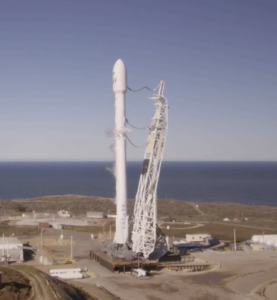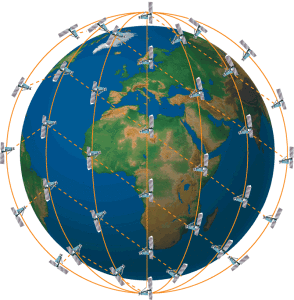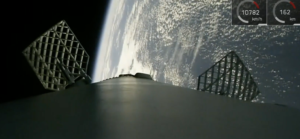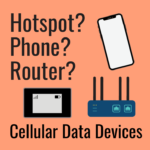
SpaceX this past weekend launched the first ten satellites of the upgraded Iridium Next satellite constellation, the first step in replacing the decades-old Iridium service with something more advanced and capable.
The current Iridium constellation was launched between 1997 and 2002, and is best known for enabling satellite telephones that work anywhere on the globe. But despite the unrivaled global coverage, the Iridium system was only ever capable of providing extremely slow and very expensive data connections.
The new generation of Iridium Next satellites are more data-centric, and once the constellation is fully upgraded it will enable a whole new range of services.
Iridium describes it this way:
"Iridium Certus is the new service platform powered by the Iridium NEXT constellation. With better coverage than any other mobile wireless network and a wide range of available speeds, it will deliver global, reliable, enterprise-grade services while redefining the capabilities of mobile satellite communications."

But even with the Iridium Next satellites, Iridium is NOT going to be any sort of speed demon.
The Iridium Next system will offer "speeds from 22 kbps and eventually all the way up to 1.4 Mbps once fully deployed" - painfully slow by LTE cellular standards, but an order of magnitude faster than the current generation of global coverage Iridium technology.
Even though today's launch was a spectacular first step, do not expect new services from Iridium to be coming to market anytime soon. Iridium has contracted with SpaceX for six further launches that will be required to get all 66 (plus four spares) Iridium Next satellites in place.
The next launch will be scheduled no sooner than April 2017, and the entire Iridium Next platform will not be fully deployed until 2018.
Things move slowly in the satellite internet world - but for those who need truly global coverage, it is great to see new options getting off the ground.
Iridium & RVers

The advantage of a Low Earth Orbit (LEO) satellite system like Iridium is that coverage is truly global.
And since that satellites are vastly closer to the ground and not in a fixed location in the sky like a geostationary satellite, you do not need a big bulky and carefully aimed dish to keep connected.
This is what makes Iridium so fabulous for handheld satellite voice phones, and some RVers who absolutely need to be reachable by voice wherever they go do indeed rely on Iridium-powered phones to do so.
But for data connections - for the time being geostationary satellite systems like HughesNet SpaceWay or Jupiter or the RVDataSAT 840 will likely remain both cheaper and faster for US based RVers than anything even Iridium Next will be able to provide.
If however you are planning an overland RV adventure to Mongolia or Patagonia, definitely keep an eye out for Iridium service.
Update On Other Satellite Internet Options

HughesNet's EchoStar 19 launched successfully in December, and we've been able to confirm that it has now reached its permanent orbit 22,000 miles over the equator.
It will still likely take HugesNet a few months to fully bring the new satellite online, but we are looking forward to some exciting new options suitable for RVers to be coming to market later this year.
Meanwhile - the Wall Street Journal has reported that SpaceX's ambitious plans to build a global satellite broadband system of its own capable of gigabit speeds may actually be getting fast-tracked to launch much earlier than the initial tentative 2020 forecast - with the first phase of the massive 4,425 satellite swarm potentially becoming operational as early as 2018.
If SpaceX can pull this hugely ambitious and unprecedented undertaking off, it would massively redefine what satellite internet is capable of.
Further Reading:
For those interested in RV-friendly satellite internet options, we recently hosted a member webinar overviewing the topic and published an updated in-depth guide here:







 Mobile Internet Resource Center (dba Two Steps Beyond LLC) is founded by Chris & Cherie of
Mobile Internet Resource Center (dba Two Steps Beyond LLC) is founded by Chris & Cherie of